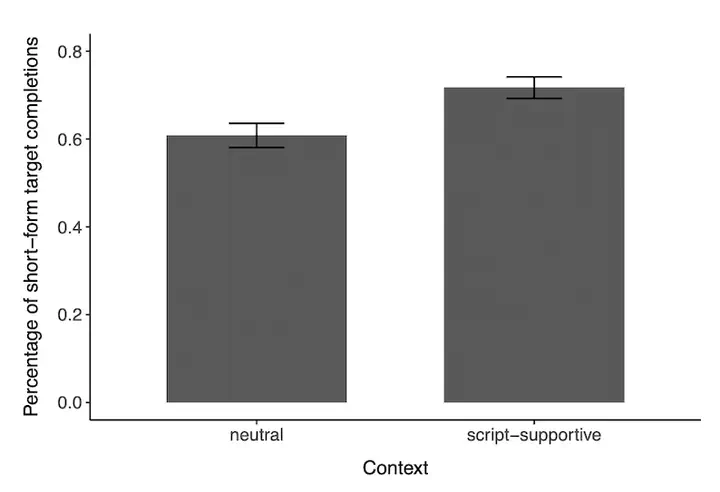A bathtub by any other name: the reduction of German compounds in predictive contexts

Abstract
The Uniform Information Density hypothesis (UID) predicts that lexical choice between long and short word forms depends on the predictability of the referent in context, and recent studies have shown such an effect of predictability on lexical choice during online production. We here set out to test whether the UID predictions hold up in a related setting, but different language (German) and different phenomenon, namely the choice between compounds (e.g. Badewanne / bathtub) or their base forms (Wanne / tub). Our study is consistent with the UID: we find that participants choose the shorter base form more often in predictive contexts, showing an active tendency to be information-theoretically efficient.
Type
Publication
Proceedings of the 43rd Annual Meeting of the Cognitive Science Society